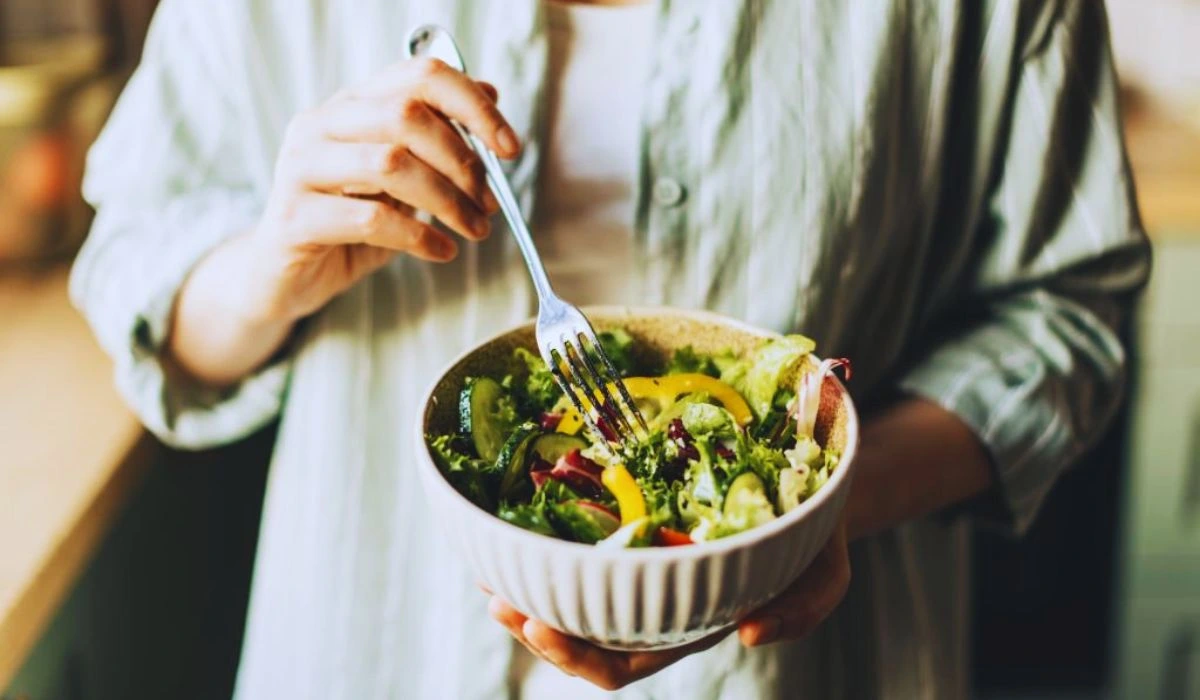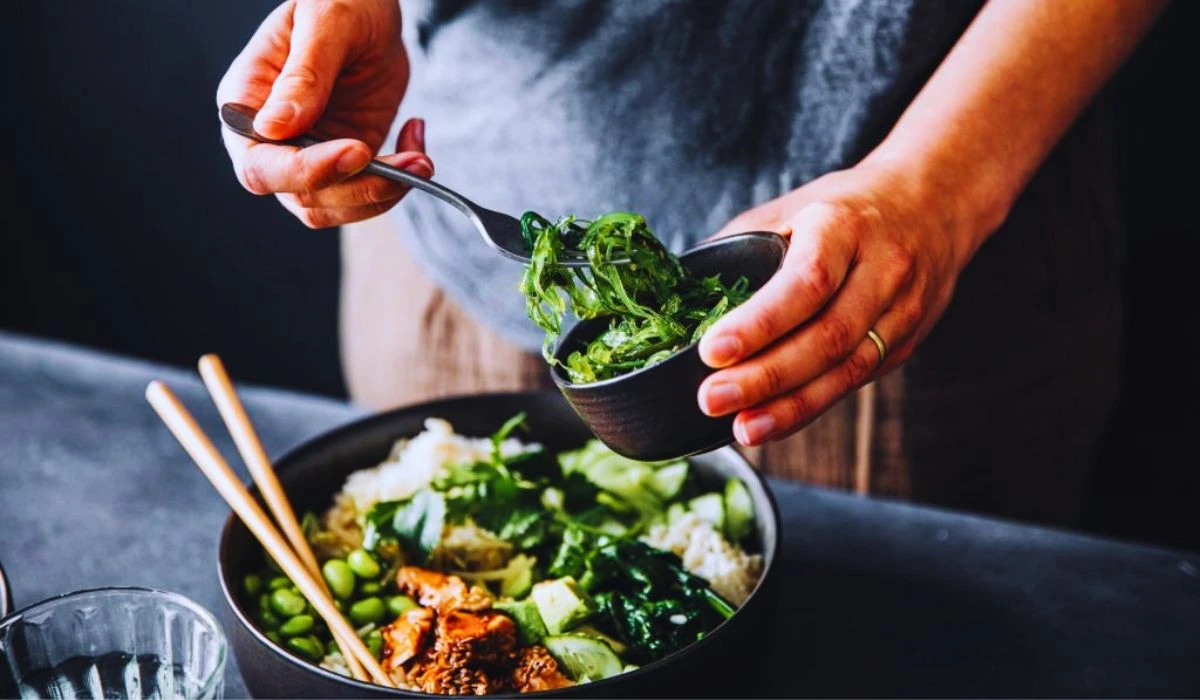Losing weight can be a challenging process, but eating nutrient-dense foods can help make it easier. Nutrient-dense foods provide substantial amounts of vitamins, minerals, fiber, and other nutrients, without a lot of extra calories. Focusing your diet on these types of foods can help promote weight loss while ensuring you get the nutrients you need.
In this article, we’ll look at some of the best nutrient-dense foods to include in your diet when trying to lose weight, along with tips on how to add them. We’ll also cover some other non-dietary factors that contribute to healthy weight loss.
Best Nutrient-Dense Foods For Weight Loss

Here are some of the top nutrient-dense foods to focus on for weight loss:
🔹 Lean Proteins
Foods like chicken breast, turkey, fish, eggs, legumes, tofu, and low-fat dairy products are excellent sources of protein that are lower in calories and fat than other protein sources. Protein helps you feel full and satisfied after eating, can increase metabolism, and aids in building muscle mass.
🔹 Fruits And Vegetables
Fruits and veggies should make up a significant portion of your diet when trying to lose weight. They provide fiber, vitamins, minerals, and antioxidants with very few calories. Some great options are leafy greens, broccoli, berries, citrus fruits, apples, pears, and bell peppers.
🔹 Whole Grains
Opt for whole grains like brown rice, oats, quinoa, and 100% whole wheat bread and pasta. The fiber in whole grains helps slow digestion and stabilize blood sugar, keeping you feeling fuller longer.
🔹 Nuts And Seeds
Nuts and seeds make for nutritious snacks and additions to salads or yogurt. They contain healthy fats that can help reduce belly fat. Walnuts, almonds, pistachios, and chia seeds are some of the most nutrient-dense choices.
🔹 Lean Meat And Fish
In addition to being excellent sources of protein, lean meats like chicken breast and fish provide important nutrients like iron, zinc, and B vitamins. Choose fatty fish like salmon a few times a week for anti-inflammatory omega-3 fatty acids.
🔹 Low-Fat Dairy
Low-fat milk, yogurt, and cheese provide protein and bone-strengthening calcium. Probiotic yogurt can support gut and immune health as well.
How To Add Nutrient-Dense Foods Into Your Diet For Weight Loss?

Here are some simple tips for getting more nutrient-dense foods into your diet:
- Start your day with a nutrient-dense breakfast like oatmeal topped with nuts and berries or a veggie omelet with whole-grain toast.
- Snack on fresh fruits, vegetables, and nuts instead of chips, cookies, or candy.
- Build meals around lean proteins, fruits/veggies, and whole grains. For example, try a stir fry with chicken or tofu over brown rice with lots of veggies.
- Choose leaner cuts of meat like sirloin or tenderloin, and opt for baking, grilling, or broiling instead of frying.
- Load up sandwiches and wraps with veggies instead of just meat and cheese.
- Drink water as your primary beverage and limit sugary juices, sodas, and lattes.
- Buy frozen fruits and vegetables to add to meals quickly when you don’t have fresh produce on hand.
- Try new spices and herbs to flavor your food instead of relying on high-calorie sauces.
- Fill half your plate with fruits/veggies at each meal.
- Avoid ordering fried, cheesy, or creamy sauced dishes when eating out. Ask for dressings and sauces on the side.
Other Non-Dietary Tips For Healthy Weight Loss
While your diet plays the biggest role, other lifestyle factors can support your weight loss efforts including:
- Staying active – Aim for 150 minutes of moderate-intensity exercise per week, like brisk walking. Strength training twice a week can also help build metabolism-boosting muscle.
- Getting enough sleep – Aim for 7-8 hours per night. Poor sleep is linked to overeating and weight gain.
- Managing stress – Uncontrolled stress can lead to overeating and cravings. Try meditation, yoga, deep breathing exercises, or keeping a journal.
- Drinking enough water – Proper hydration supports metabolism and digestion. Aim for eight 8-oz glasses daily.
- Tracking your intake – Writing down meals and snacks can help increase awareness of your diet.
- Eating mindfully – Pay attention to hunger cues, eat slowly, and stop when you feel satiated.
Conclusion
Focusing your diet on nutrient-dense whole foods can help promote healthy, sustainable weight loss over time. Be sure to include plenty of lean proteins, fruits, vegetables, whole grains, nuts, and healthy fats.
Build meals around these nourishing foods, practice portion control, and minimize processed items like fast food and sugary snacks. Combine your diet with regular exercise and other positive lifestyle habits. Be consistent and patient – small changes made each day add up to big results over weeks and months.
FAQ
A: The great thing about nutrient-dense foods is that there are so many varieties to choose from. If you dislike certain foods, look for nutritious alternatives. For example, if you don’t like broccoli or spinach, try kale, Brussels sprouts, collard greens, zucchini, or Swiss chard instead.
A: You don’t necessarily have to eliminate all treats if you focus on getting nutrients from whole foods for most meals and snacks. Just be mindful of portions. Aim to limit higher-calorie desserts to a couple of times a week and stick to a small serving size.
A: Most experts recommend eating 0.5-0.8 grams of protein per pound of body weight when trying to lose weight. So if you weigh 150 pounds, that would equate to 75-120 grams of protein daily. Spread this out over all your meals and snacks.
A: Instead of counting calories, practice listening to your body’s natural hunger and fullness cues. Serve yourself smaller portions and eat slowly. Stop eating when you start feeling satisfied rather than overly full. Choosing nutrient-dense whole foods makes it easier to eat until satisfied without overconsuming calories.
A: Fortunately, there are lots of healthier ways to satisfy a sweet craving. Try options like fresh fruit with plain Greek yogurt, baked apples with cinnamon, protein smoothies made with frozen fruit, or dark chocolate with nuts. Limiting yourself to a small treat once in a while can help satisfy cravings.

